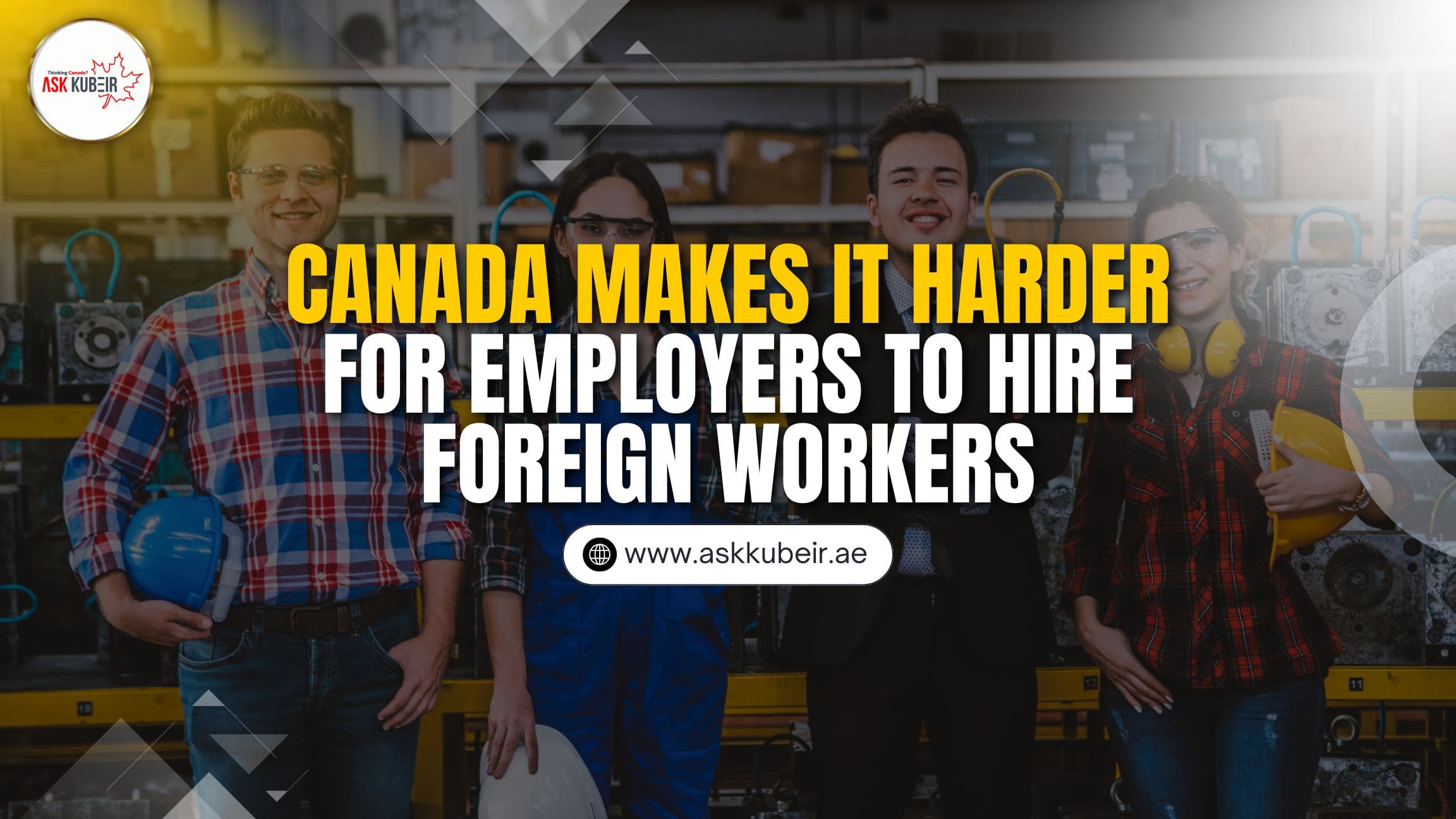
Canada has made big changes to its Temporary Foreign Worker Program (TFWP). This program helps Canadian employers hire workers from other countries when they can’t find Canadians to do the job. But now, the rules are stricter—and that’s making many skilled foreign workers worried about their jobs and future in Canada.
What has changed under the new rules
Starting from late 2024, the Canadian government brought in new rules to reduce how much employers depend on foreign workers. These changes include:
- Higher wages: If you’re in a high-wage job, your employer must now pay you at least 20% more than the average wage in your region. That’s around $5 to $8 more per hour.
- Fewer job spots for foreign workers: If you’re in a low-wage job, employers can now only fill 10% of these positions with foreign workers. That means more competition and fewer opportunities.
These new rules mean that about 34,000 jobs will move from high-wage to low-wage categories, which usually come with fewer benefits and less job security. This shift is making many foreign workers feel uncertain, especially those worried their work permits might not be renewed—or worse, that they might be forced to leave Canada.
Why is Canada doing this?
The government says it wants to protect Canadian workers and give them better chances at jobs. By making it more expensive to hire foreign workers, employers may look harder to find local Canadian talent first.
But at the same time, many employers are now worried too. They say these changes could lead to labour shortages, especially in industries like construction, agriculture, hospitality, and healthcare, where it’s already hard to find enough workers. Some businesses are asking the government to reconsider because these rules might hurt their ability to operate smoothly.
Will this affect Canada’s reputation?
Canada has always been seen as a welcoming country for skilled migrants, but these changes may send a different message. Workers around the world may now think twice before applying to come to Canada—especially if they’re afraid of not having their job renewed or being deported.
Balancing Canadian job protection and welcoming foreign talent is now a big challenge for the government. What happens in the next few months will show whether this new policy helps the economy—or creates more problems than it solves.
FAQs – What you need to know
1. I’m a foreign worker in Canada. Will I lose my job?
If your job falls into the low-wage category, there’s now a limit on how many foreign workers can be hired. You may want to check if your employer can still support your position or if they can help you apply for permanent residency soon.
2. What is the difference between a high-wage and low-wage job?
High-wage jobs pay more than the average wage in your region. Low-wage jobs pay below that. The rules are now tougher for low-wage jobs, with fewer positions available for foreign workers.
3. Can I switch to another immigration program?
Yes, you may want to explore other options like Express Entry, Provincial Nominee Programs (PNPs), or pilot programs for permanent residency. Talk to a licensed immigration consultant to know your best path.
4. Why are these rules being changed now?
The government wants to reduce dependence on temporary foreign workers and create more opportunities for Canadians. But it’s also facing pressure from businesses that still need skilled workers.
5. Should I be worried about deportation?
If your work permit is expiring and your employer can’t continue your job due to these changes, then yes, it could become a risk. That’s why it’s important to start exploring PR options as soon as possible.
Conclusion
The new rules are a wake-up call for both employers and foreign workers in Canada. While the goal is to protect Canadian jobs, the changes are creating stress and fear in the foreign worker community. If you’re unsure what this means for your future, now is the time to get help from an expert and plan your next move—before it’s too late.






